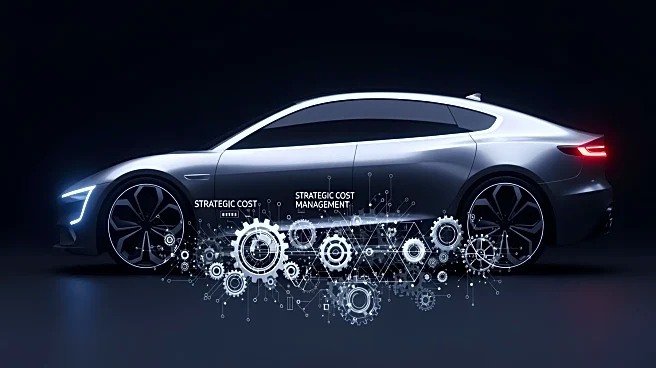What's Happening?
Rivian Automotive Inc. is expressing increased confidence in the economic viability of its R2 mid-sized sport-utility vehicle. Chairman and CEO R.J. Scaringe highlighted the company's strategic decision to prioritize parts produced domestically or under
the USMCA trade agreement, which has positively impacted the R2's bill of materials. This decision was made prior to President Trump's tariff initiatives. Recent tariff policy adjustments have further reduced Rivian's trade war-related costs to a few hundred dollars per vehicle, down from initial estimates of several thousand. Rivian plans to start R2 production in the first half of next year, aiming for profitability by the end of 2026.
Why It's Important?
Rivian's strategic focus on domestic production and favorable tariff policies could significantly enhance its competitive edge in the electric vehicle market. By reducing production costs, Rivian is better positioned to achieve profitability, which is crucial for sustaining investor confidence and expanding market share. The company's approach aligns with broader industry trends favoring local manufacturing to mitigate geopolitical risks and supply chain disruptions. Success in the R2 model could set a precedent for other automakers navigating similar challenges.
What's Next?
Rivian is on track to ramp up production of the R2 model, with plans to manufacture up to 155,000 units annually. This production increase is essential for achieving the company's profitability goals. Stakeholders will be closely monitoring Rivian's ability to maintain cost efficiencies and meet production targets. The company's performance could influence future tariff policies and trade agreements, impacting the broader automotive industry.















